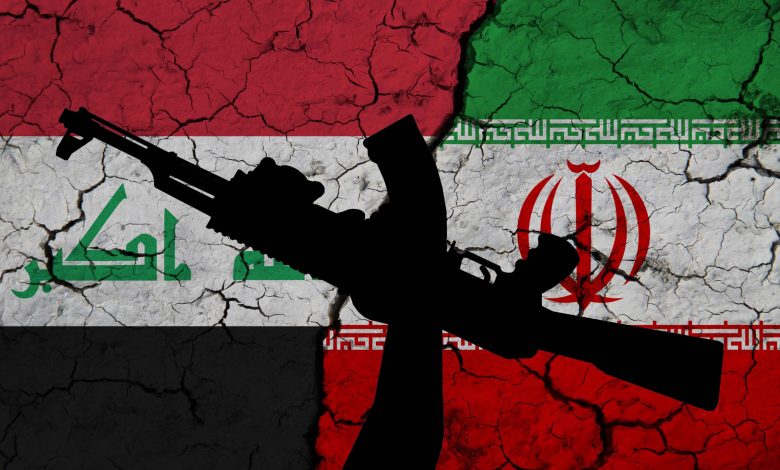Where have the pro-Iranian political differences in Iraq reached?

Iraq is witnessing a fierce political struggle between influential forces within Iraq itself and other forces loyal to Iran and supporters of relations with Washington. The United States is seeking to control the political aspect in Iraq, especially after the Iranian-backed political parties gained control of the Iraqi parliament.
Recently, the intensity of the disagreements within the coordinating framework of the Shia forces forming the Iraqi government under the leadership of Mohammed Shia’ Al Sudani has escalated, and the relationship with the United States is on the verge of fading away. Armed groups have escalated their rhetoric against Washington, giving the Iraqi government a last chance to deal with the issue of the presence of US forces in the country.
US movements
For some time now, the US military has increased security and military measures on the Syrian borders with Iraq and Jordan to confront any possible movements by pro-Iranian militias. They have increased coordination between the affiliated groups within the framework of the international coalition forces.
According to sources, the US army has taken new steps against elements supported by Iran in order to ensure coordination between the Free Syrian Army and the forces of the Sanadid working under the umbrella of the Syrian Democratic Forces (SDF) along the Iraq-Jordan border.
Militias moving from Syria to Iraq
About 250 members of the Fatemiyoun Afghan militia, affiliated with the Iranian Revolutionary Guard, left the city of Palmyra in central Syria with their families and headed towards Al-Bukamal city in the eastern countryside of Deir ez-Zor. They then left Syrian territory for Iraq, coinciding with a meeting at the T-4 military airport between a Russian military delegation, an Iranian delegation, and a delegation from Hezbollah in Lebanon, without knowing the results.
According to the sources, the reinforcements started from Palmyra and included three SUVs, four military vehicles carrying Afghan fighters, two vehicles carrying ammunition, and one rocket launcher.
What’s happening in Iraq
The Iraqi Resistance Coordination Committee, composed of several armed militias loyal to Iran, gave the Al-Sudani government what it called the “last opportunity” to put an end to “US violations in Iraq” and threatened to resume military operations if Washington carries out its threat to target one of the faction leaders.
The factions confirmed that the goal of stopping military operations against the US military presence in Iraq is due to the “danger of this stage and the necessity of overcoming it.”
The factions continued, stating that Washington rudely threatened to target one of the resistance leaders, which requires us to fulfill our legitimate and national duty with an appropriate response if these violations continue. They indicated that the Coordination Committee of the Iraqi Resistance, based on the efforts intended by the Iraqi government, grants a last chance to reduce these violations, and everyone should know that our patience has limits, and every action has a reaction, and those who warned have an excuse.
Religious references and Iranian influence
Dr. Abdul Karim Al-Wazan, an Iraqi journalist, says that many allocations of salaries for Iranian political and military forces in Iraq, with their formation and before the enactment of their own law, were directly dependent on the huge funds received from religious references inside and outside Iraq through jihad assistance, daily donations to holy shrines, in addition to grants provided by Shia businessmen and fundraising campaigns launched by the factions from time to time.
Al-Wazan added that since then, Iranian political forces in Iraq have exerted many pressures to gain control, and under the influence of elections and political alliances, the government complied with everyone.
Al-Wazan believes that the current escalation by armed groups does not go beyond an attempt to evade international conditions on which the current government was formed. He added that the Al-Sudani government was formed after a conflict with the Sadrists, and this necessitated the coordinating framework parties to form the government under Washington’s conditions in exchange for the acceptance of the international community to the outcomes of the political process. It seems that accepting Washington’s conditions for the formation of the Iraqi government has ultimately led to “creating divisions within the coordinating framework forces.”












